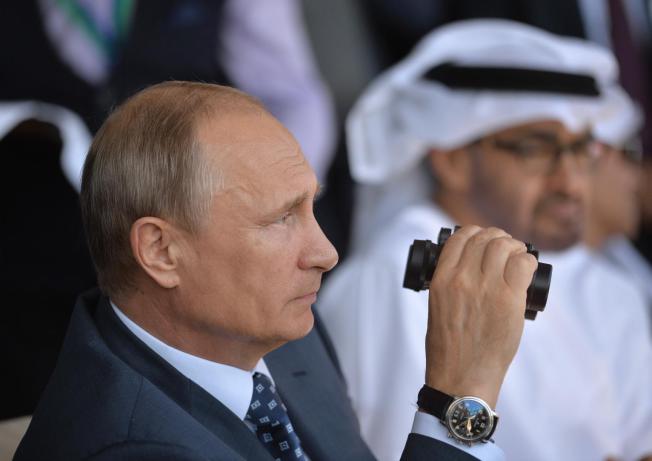Asia
Putin thinks North Korea crisis will not go nuclear, diplomacy to prevail

Russian President Vladimir Putin said on Thursday he thought the North Korea crisis would not escalate into a large-scale conflict involving nuclear weapons, predicting that common sense would prevail.
But he said he believed North Korea’s leadership feared any freeze of its nuclear programme would be followed by what amounted to “an invitation to the cemetery’’.
Putin, speaking at an economic forum in the far eastern Russian port of Vladivostok alongside his South Korean counterpart and the Japanese prime minister, had previously warned that simmering tensions around Pyongyang’s missile programme could tip into “global catastrophe”.
But on Thursday after days of talks with regional leaders and officials, Putin struck a more optimistic note, saying Russia could see that the administration of U.S. President Donald Trump wanted to defuse tensions around North Korea.
“I am sure that things will not go as far as a large-scale conflict, especially with the use of weapons of mass destruction,” Putin told delegates at the forum.
“All the competing sides have enough common sense and understanding of their responsibility. We can solve this problem through diplomatic means.”
Russia has a land border with North Korea less than 20 km (12 miles) long.
Putin, who was sharing a platform with South Korean counterpart, Moon Jae-in and Japanese Prime Minister, Shinzo Abe, has spent the past few days pushing for negotiations, calling on all sides to dial down rhetoric.
The U.S. wants the UN Security Council to impose an oil embargo on North Korea, ban it and subject leader Kim Jong Un to an asset freeze and travel ban, according to a draft resolution.
Putin gave no indication on Thursday whether Moscow would back that resolution; but he and top Russian government officials have previously condemned the idea of tightening sanctions and shown little enthusiasm to stop modest fuel exports to Pyongyang or send home North Korean workers.
Instead, Russia, along with China, has advocated a “freeze for freeze” plan, under which the U.S. and South Korea would stop major military exercises in exchange for North Korea halting its weapons programmes.
Neither side appears willing to budge so far however.
Putin said Pyongyang would not end its nuclear and missile programmes because it viewed them as its only means of self-defence.
“It’s impossible to scare them,’’ said Putin.
Pyongyang was being offered the prospect of no new sanctions if it froze its weapons programmes, but Putin said North Korea believed the wider risks to its own security outweighed the potential economic benefits of such a concession.
The crisis around North Korea requires quick action, Abe said on Thursday, calling on world powers to press Pyongyang to abide by its UN obligations.
“North Korea must fulfil all UN resolutions, abandon its nuclear and missile programmes.
“The international community must unite to force North Korea to fulfil its UN obligations,” Abe said at the economic forum in the far eastern Russian city of Vladivostok.




 Davido's Net Worth & Lifestyle
Davido's Net Worth & Lifestyle 
